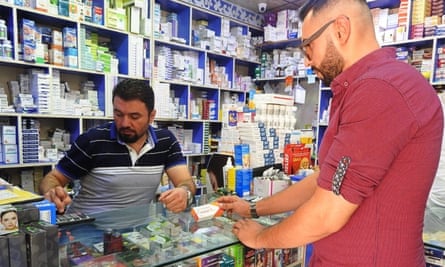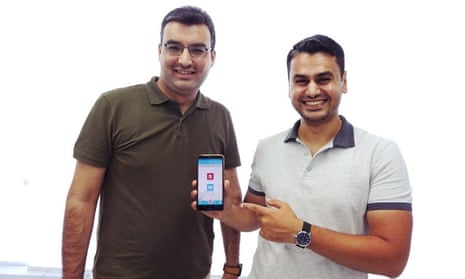When Ameen Hadeed’s father had heart surgery in 2015, the tricky part was not the operation but finding the drugs to aid his recovery.
The clinic had no medicine, so Hadeed was told to hustle around his home city Mosul to find the prescriptions. It took hours and cost a small fortune, as he visited store after store.
“It was very stressful. Without the medication, he could have died,” Hadeed, 28, recalls.
“That day I promised myself and my dad that I would one day do something to address this issue in our country,” the former engineering student says.
Five years later, he has. Hadeed has created a new app that directs patients and relatives to pharmacies that have the medication they need – and indicates where products are most cheaply available.
“People don’t have much awareness about the prices of medicine, they end up buying very expensive medicine without knowing the real price,” he says.
Quick GuideWhat is the Upside?
Show
Ever wondered why you feel so gloomy about the world - even at a time when humanity has never been this healthy and prosperous? Could it be because news is almost always grim, focusing on confrontation, disaster, antagonism and blame?
This series is an antidote, an attempt to show that there is plenty of hope, as our journalists scour the planet looking for pioneers, trailblazers, best practice, unsung heroes, ideas that work, ideas that might and innovations whose time might have come.
Readers can recommend other projects, people and progress that we should report on by contacting us at theupside@theguardian.com
Following the destruction of many hospitals during Iraq’s protracted conflict, many patients in Iraq now seek treatment through private medical centres while public services are reconstructed.
Usually an informal arrangement exists between pharmacies and doctors where the chemist offers free clinic space for medical practitioners within their facilities. The doctors are then expected to direct patients to buy medication from that pharmacy, which typically charges over the recommended retail price.

The Pharx app that Hadeed created with developer Ammar Alwazzan hooks patients up with a network of almost 200 Mosul pharmacies. It’s free to use and liberates patients from the closed loop of private medical facilities, doctors and pharmacists tied to commercial drug reps, Hadeed said. For pharmacies, it costs $30 (£24) per month after a free introductory six months.
After incubating his idea for three months with 51Labs in Sulaymaniyah alongside his day job as a business consultant, Hadeed won funding from the Iraq Response Innovation Lab, led by Oxfam. The hub supports innovators to develop, test and pilot projects to solve humanitarian challenges. Organisations and entrepreneurs can use the lab space in Erbil to work up their concepts and collaborate with others.
The app, the first of its kind in Iraq, launched in March. It has been downloaded more than 500 times and has received 8,000 likes on Facebook. There remain challenges – the Covid-19 curfew has hampered production of Facebook ads, for example. There are legal constraints to prescribing and Iraq is still largely a cash society, but Hadeed hopes his app will switch the odds in favour of patients and independent pharmacies.
“In Iraq, you have to put in place plan Z not just plan B, because everything changes very fast, but there’s a real need for this,” he says.
This article is part of a series on possible solutions to some of the world’s most stubborn problems. What else should we cover? Email us at theupside@theguardian.com
